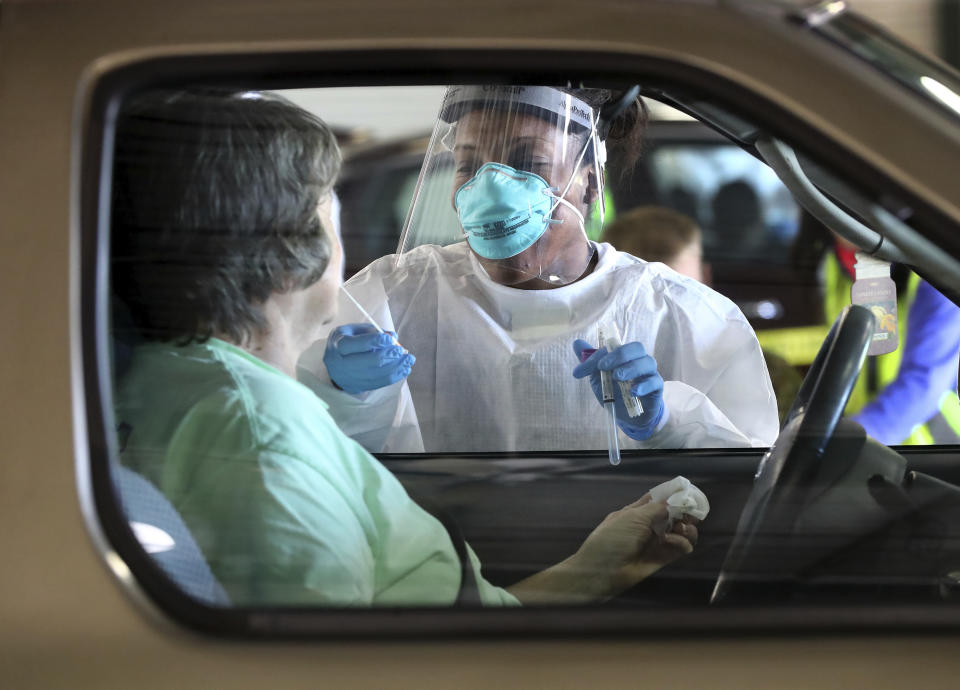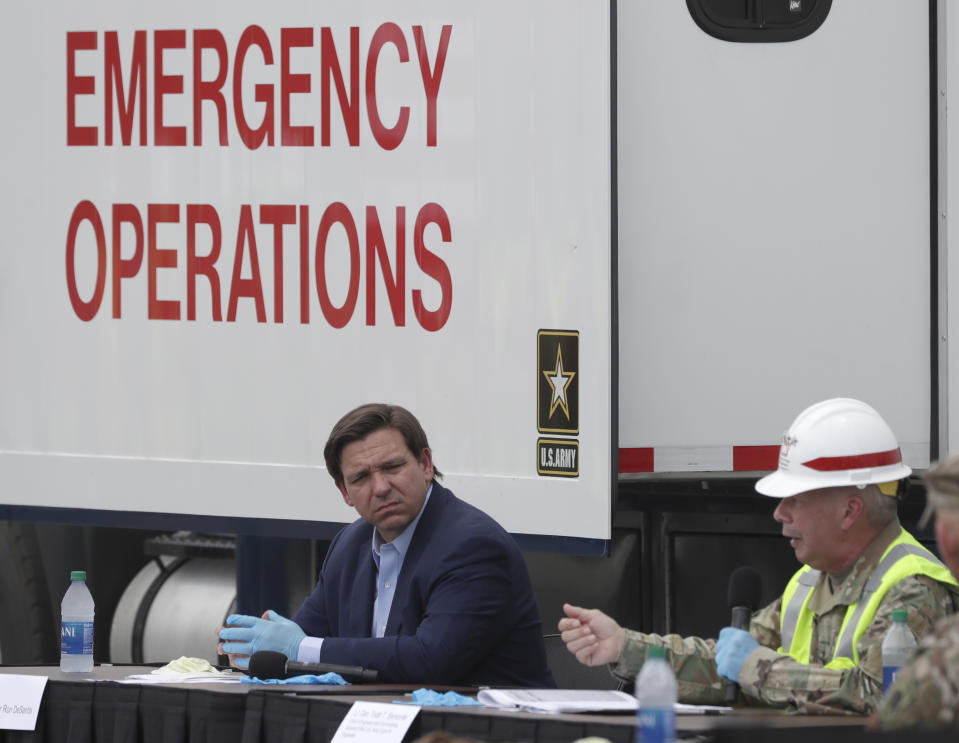These 4 Republican states are ignoring Trump’s reopening guidelines
What happens when the coronavirus is prevalent and you send people out anyway?
We’re on the verge of finding out, thanks to some Republican-controlled states that are willing to serve as reopening guinea pigs. The governors of Georgia, South Carolina and Alaska are allowing some businesses to reopen this week, as long as they follow distancing and sanitary guidelines. Tennessee will allow many businesses to reopen May 1. Florida and several other states are working on reopening plans.
None of those states meets the Trump administration guidelines for reopening businesses. Those guidelines say, among other things, that a state must have a declining trajectory of coronavirus cases for 14 days straight before reopening. If the number rises for a single day, the clock resets and the 14-day countdown starts over again.
Yahoo Finance analyzed raw data on state-by-state test numbers collected by the Covid Tracking Project for the four states planning to reopen, through April 21.
Alaska saw an increase in new daily cases from 2 on April 20 to 8 on April 21. The number is relatively small, but according to the Trump guidelines, the 14-day countdown should have started over on April 21, making the earliest possible reopening date May 5, as long as the case count drops consistently till then.
Georgia had an increase in the number of daily confirmed cases from 646 on April 20 to 934 on April 21. Its earliest possible reopening date should be May 5.

The data for South Carolina are a bit sketchy, because there were 0 new daily cases on April 20 and several other dates. But that’s probably a reporting lag or irregularity. For dates with numbers, there were 103 new cases on April 15; 275 on April 17; 315 on April 18; 131 on April 19; and 62 on April 21. If those numbers are legit, the recent peak was April 18, which would make the earliest possible reopening date May 2.
In Tennessee, the recent peak was 308 new cases on April 19. It dropped to 168 and then 156 during the next two days. So the appropriate reopening date would be May 3 if the downward trend remains unbroken. That’s only two days later than the governor plans to reopen—but he’s not making reopening contingent on a downward trajectory.
In Florida, the number of new cases rose from 664 on April 20 to 835 on April 21. The curve is not descending, yet Gov. Ron DeSantis has hinted he wants to lift stay-at-home orders soon. Jacksonville has already reopened its beaches.
There’s an alternate criterion to the total number of confirmed coronavirus cases, which is a declining rate of positive tests as a percentage of all tests. None of the four states has met that guideline, either. In Georgia, for instance, the percentage of positive tests was higher on April 21 than on April 20. And the portion of positive tests was so high—22.5%—that it indicates the state is probably only testing people with serious symptoms, or those who seek treatment. Much broader screening is required to tell how widespread the virus is among the overall population.
The Trump guidelines aren’t binding, and states are free to ignore them, as these four are. But the guidelines are meant to reduce the odds of a resurgence in infections that forces business closures all over again and possibly causes panic among workers who feel employers are jeopardizing their safety by forcing them back to crowded workplaces where they could get sick. One missing piece of a careful reopening plan is widespread testing that lets employers identify those who carry the virus, and send them home so they can’t infect others. The United States is doing about 150,000 tests per day, but experts say it will take 3 to 20 times that number to effectively screen people and contain the virus with confidence.

Trump has undermined his own guidelines by encouraging protests, through his notorious “LIBERATE” tweets, against shutdowns in Michigan, Minnesota and Virginia. Trump has said several times that “we can’t have the cure be worse than the problem,” meaning the economic damage caused by the coronavirus shutdown could be worse than the illnesses and deaths caused by the virus. Attorney General William Barr even said he’d consider legal action against states that unnecessarily prolong lockdowns.
Most Americans prioritize safety over a quick return to normal activity. In an April 14 Gallup survey, 71% of respondents said they want to wait and see what happens once governors lift lockdown orders. Only 20% said they want to get back to normal “immediately.” Republicans are more willing to start going back out, with 31% saying they want to get back to normal immediately, compared with just 11% of Democrats.
The Republican guinea-pig states could help illuminate what might happen if governors let businesses reopen and infections spike again, which economists and public health experts consider a worst-case scenario that would cause needless deaths and deepen the recession. It’s also not clear if workers will return to their jobs, or shoppers to stores. Smithfield and Tyson Foods have had to close meat processing plants recently because coronavirus outbreaks made some workers sick and others refused to show up.
It’s also possible reopenings in the four states could go better than expected and provide a template for other states. Yet even Brian Kemp, governor of Georgia, acknowledged, “when we have more people moving around, we’re probably going to see cases continue to go up.” Who wants to go first?
Rick Newman is the author of four books, including “Rebounders: How Winners Pivot from Setback to Success.” Follow him on Twitter: @rickjnewman. Confidential tip line: rickjnewman@yahoo.com. Encrypted communication available. Click here to get Rick’s stories by email.
Read more:
Follow Yahoo Finance on Twitter, Facebook, Instagram, Flipboard, SmartNews, LinkedIn, YouTube, and reddit.

 Yahoo Finance
Yahoo Finance 
